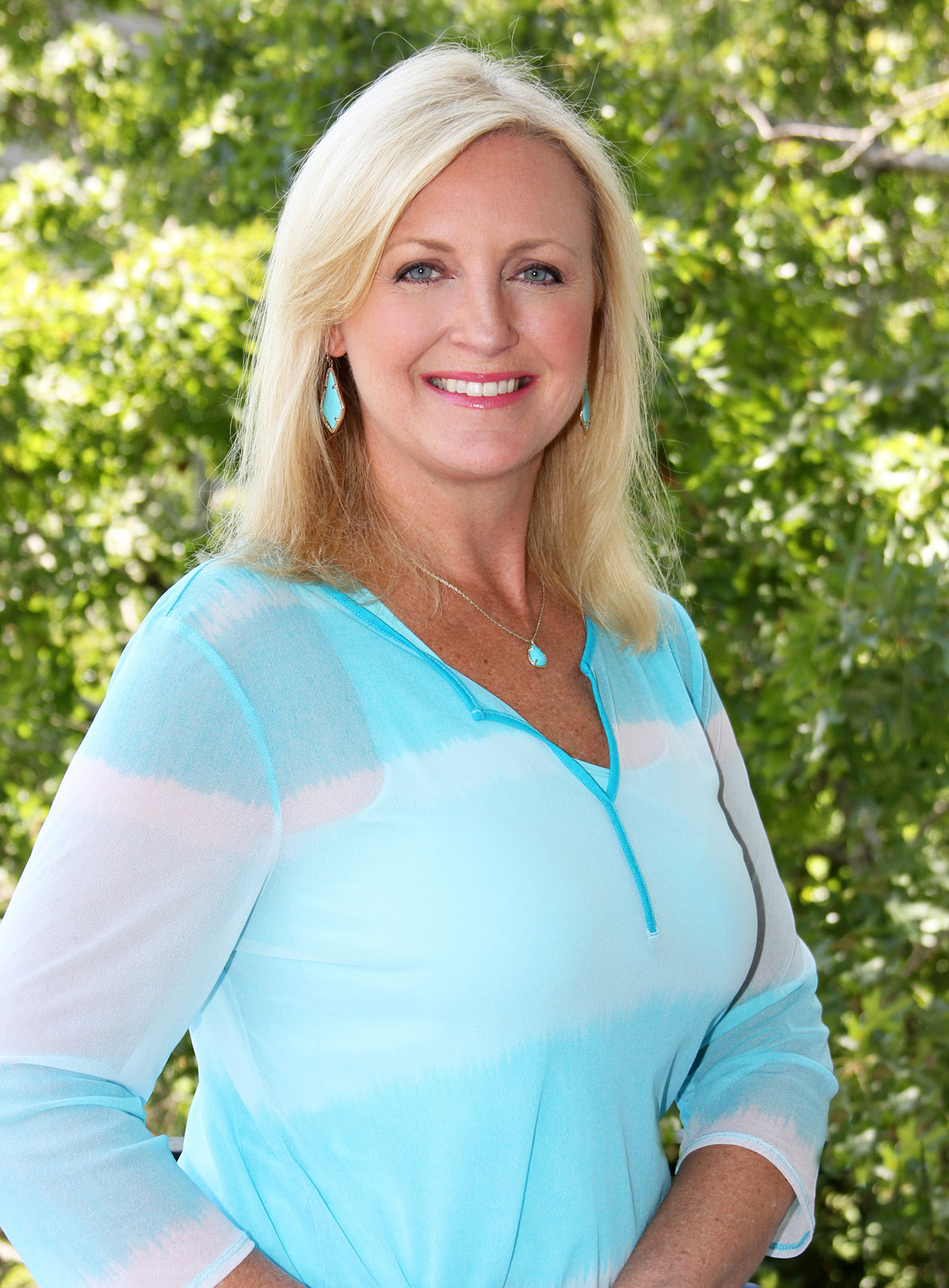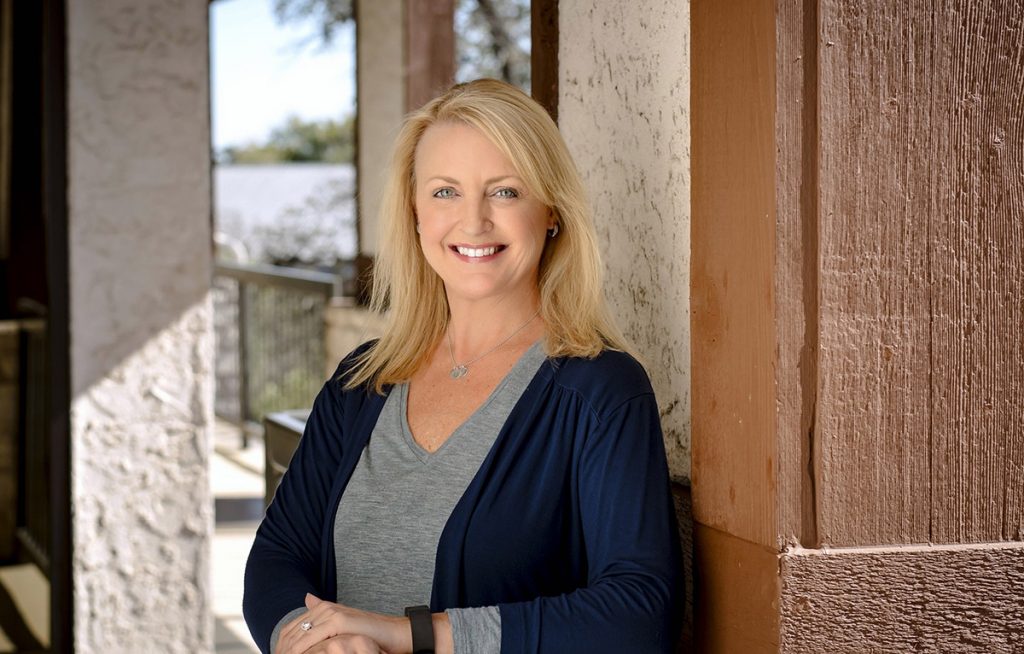Advocate Leads Autism Center
Kelle Wood Rich leads a team of applied behavior analysis therapists to better teach people with autism.

Courtesy of Kelle Wood Rich
Advocate Leads Autism Center
Kelle Wood Rich leads a team of applied behavior analysis therapists to better teach people with autism.
As a high schooler, Dallasite Kelle Wood Rich ’92 set her heart on becoming a marine biologist — until a seaside practicum found her scraping algae instead of diving with dolphins. Her next externship was closer to home at an autism treatment center in Richardson, Texas. “That shifted everything for me,” she said.
Declining all her admissions offers from colleges in California and Florida, she chose TCU for its special education program, which provided a heavy emphasis on student teaching. “When I graduated from TCU, I was one of the few interviewing at public schools who had quite a bit of experience in the realm of autism, so I had a lot of job offers.”
Rich taught in public schools for three years and attended countless seminars on how to more effectively teach reading, math and other subjects. She said she realized the common thread was behavior. After earning a master’s degree in education (which included a summer in Italy), she began studying applied behavior analysis — the science behind behavior — and became a board-certified behavior analyst. “Learning that science gave me the ‘why’ to what I did that was effective and what I did that was not effective.”
She launched a consulting group and spent a decade traveling the globe conducting classroom behavior workshops before founding the first autism center in Austin, Texas, in 2003. Now with almost 50 therapists, the Central Texas Autism Center sees about 75 kids a week and is known for its age-specific programs for toddlers through young adults. It also hosts workshops, trains other teachers and professionals in the science of applied behavior analysis, and has worked with hundreds of school districts across Texas.
These days Rich is running the center remotely from Costa Rica. Her family made the move for her husband’s temporary work assignment, but the pura vida (simple life) enticed them to extend their beachfront stay. Rich recently reflected on her life and career, sharing some of her lessons learned along the way.

Kelle Wood Rich leads Central Texas Autism Center, which sees about 75 kids a week and is known for its age-specific programs for toddlers through young adults. Courtesy of Kelle Wood Rich
Our Delta Gamma motto was always “do good.” I’ve set that as my compass in life. If you put doing what’s good and what’s right — for your employees, your clients, yourself, your family — ahead of finances, ego, peer pressure, I’ve found that you will always land on your feet. That’s the advice I give to someone heading to college: “Do good. Just two words. Keep them in your head.” It sounds simplistic, but it’s a good guiding principle.
“Don’t be afraid to make changes, be aware of doors opening, and take calculated risks to take advantage of those openings.”
Kelle Wood Rich
Stay open to change, stay open to possibilities, and keep an open mind. I started my first company at the age of 29, and that was a scary step to take that young. I had a lot of trepidation about leaving the security of the school district and the benefits. Looking back, it was a great decision. Don’t be afraid to make changes, be aware of doors opening, and take calculated risks to take advantage of those openings.
Pay attention to your equilibrium and balance. I recently found an old handwritten calendar, and I felt overwhelmed just looking at it. I was on the road 15 days at a time, and when I was home, I was working 10-12 hours a day. It’s a very American thing to think you have to work 24/7. If I could go back and speak to my 20-something self, I would say, “Slow down and take a breath. It’s OK to say no. You’ll still be needed and valued.”
You can be a strong leader and still be a kind, loving leader. You have to have boundaries in place, but you can still have close relationships with your staff and clients. I think in the end what makes you a good leader and a good boss is having those personal connections with people. That’s what makes people loyal to you and loyal to your brand. They have to feel like you truly care about them as people.
I’ve learned to be a neutral listener. I try to listen without prejudgment but with the goal of understanding. That helps defuse emotional situations. Learn how to be quiet and then reflect back. The process of just letting people talk often helps them talk through and defuse their emotions.
For readers dealing with autism in their lives, I would highly encourage them to find a good ABA program that’s supervised by a reputable board certified behavior analyst (BCBA) and get their child or their adult into that line of therapy as quickly as possible. It’s the gold standard of therapy. If you have an autism diagnosis, insurance companies are required to cover ABA therapy specifically now.
“Learn how to be quiet and then reflect back. The process of just letting people talk often helps them talk through and defuse their emotions.”
Kelle Wood Rich
People experience autism in different ways. Some people take charge, immediately try to get their kids treatment and have a “We’re going to work through this” attitude, and some people are sad and grieving the loss of what they thought they would have with their child. Understand that when a family receives a diagnosis, they may go through a whole process very similar to the grief process.
Some people still think of Rain Man when they think of autism. There are different severity levels of autism. There are very high-functioning people with autism who go to college, get married and have successful careers. But there’s another side of autism that you don’t hear about a lot that is very severe and traumatic, where someone’s child may be nonverbal and never say “I love you” or they might be self-injurious or violent and aggressive. That is life-changing. Those families can’t travel, go out to dinner or even find a babysitter. Reach out to them. Understand they just want to feel normal. They want to be invited — even if they can’t go.
I think I became a better therapist and a better boss when I became a mom. I developed much more patience, empathy and understanding of the struggles my clients were going through. I gained so much insight on the challenges of being a mom, running a business and how it’s easy to give in and reinforce an unwanted behavior because you’re so tired. Becoming a mom presented a lot more challenges with time management, but I definitely think it helped with my career.
Edited for clarity and length.

Your comments are welcome
Comments
Related reading:
Campus News: Alma Matters
Beyond the Spectrum
Naomi Ekas is using positive psychology to ease the stress experienced by parents of children with autism.
Research + Discovery
Community Support Helps Families Rise to a Challenge
Assistant professor Aesha John researches the understanding, impact and resources of parents with an intellectually disabled child.
Research + Discovery
Floyd Wormley Jr. Leads Research and Graduate Studies
The associate provost, dean and professor works to perfect the teacher-scholar model and help faculty learn to market their research.